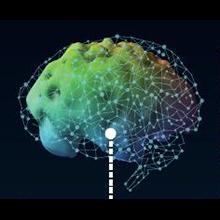21 August 2018

Schizophrenia, cannabis use, and alcohol abuse are just several disorders that are related to accelerated brain aging
Costa Mesa, CA, USA – In the largest known brain imaging study, scientists from Amen Clinics (Costa Mesa, CA), Google, John’s Hopkins University, University of California, Los Angeles and the University of California, San Francisco evaluated 62,454 brain SPECT (single photon emission computed tomography) scans of more than 30,000 individuals from 9 months old to 105 years of age to investigate factors that accelerate brain aging. SPECT tomography) evaluates regional cerebral blood flow in the brain that is reduced in various disorders.
Lead author, psychiatrist Daniel G. Amen, MD, founder of Amen Clinics, commented, “Based on one of the largest brain imaging studies ever done, we can now track common disorders and behaviors that prematurely age the brain. Better treatment of these disorders can slow or even halt the process of brain aging. The cannabis abuse finding was especially important, as our culture is starting to see marijuana as an innocuous substance. This study should give us pause about it.”
The current study (to be published in a forthcoming issue of the Journal of Alzheimer's Disease) used brain SPECT imaging to determine aging trajectories in the brain and which common brain disorders predict abnormally accelerated aging. It examined these functional neuroimaging scans from a large multi-site psychiatric clinic from patients who had many different psychiatric disorders, including bipolar disorder, schizophrenia and attention deficit hyperactivity disorder (ADHD).
Researchers studied 128 brain regions to predict the chronological age of the patient. Older age predicted from the scan compared to the actual chronological age was interpreted as accelerated aging. The study found that a number of brain disorders and behaviors predicted accelerated aging, especially schizophrenia, which showed an average of 4 years of premature aging, cannabis abuse (2.8 years of accelerated aging), bipolar disorder (1.6 years accelerated aging), ADHD (1.4 years accelerated aging) and alcohol abuse (0.6 years accelerated aging). Interestingly, the researchers did not observe accelerated aging in depression and aging, which they hypothesize may be due to different types of brain patterns for these disorders.
Commenting on the study, George Perry, PhD, Chief Scientist at the Brain Health Consortium from the University of Texas at San Antonio, said, “This is one of the first population-based imaging studies, and these large studies are essential to answer how to maintain brain structure and function during aging. The effect of modifiable and non-modifiable factors of brain aging will further guide advice to maintain cognitive function.”
Co-investigator Sachit Egan, Google Inc. (Mountain View, CA), said, “This paper represents an important step forward in our understanding of how the brain operates throughout the lifespan. The results indicate that we can predict an individual's age based on patterns of cerebral blood flow. Additionally, groundwork has been laid to further explore how common psychiatric disorders can influence healthy patterns of cerebral blood flow.”
 Caption: Drivers of Brain Aging. Credit: Daniel G. Amen
Caption: Drivers of Brain Aging. Credit: Daniel G. Amen
# # #
NOTES FOR EDITORS
Full study: “Patterns of Regional Cerebral Blood Flow as a Function of Age Throughout the Lifespan,” by Daniel G. Amen, Sachit Egan, Somayeh Meysami, Cyrus A. Raji and Noble George (DOI 10.3233/JAD-180598). It is to be published in the Journal of Alzheimer’s Disease published by IOS Press.
View video at: youtube.com/watch?v=99d6sw8Di20
Daniel G. Amen, MD, is a double-board certified psychiatrist and founder of Amen Clinics in Costa Mesa Encino, Walnut Creek, CA, Bellevue, WA, Reston, VA (DC area), Atlanta, GA, Chicago, IL, and New York, NY. He is the author of Feel Better Fast (to be released 11/2018) and Change Your Brain, Change Your Life.
Contact
The full text of the study is available to credentialed reporters upon request. Contact Nancy Mamann, Amen Clinics (+1 310 871 8877; nmamann@amenclinics.com) or Diana Murray, IOS Press (+1 718 640 5678; d.murray@iospress.com).
About Amen Clinics
Amen Clinics, Inc. was established in 1989 by Daniel G. Amen, MD, who is a physician, psychiatrist, professor and ten-time New York Times bestselling author. Amen Clinics has the world’s largest database of functional brain scans relating to behavior, totaling over 145,000 scans on patients from 120 countries. amenclinics.com
About the Journal of Alzheimer's Disease
The Journal of Alzheimer's Disease (JAD) is an international multidisciplinary journal to facilitate progress in understanding the etiology, pathogenesis, epidemiology, genetics, behavior, treatment and psychology of Alzheimer's disease. The journal publishes research reports, reviews, short communications, book reviews, and letters-to-the-editor. Groundbreaking research that has appeared in the journal includes novel therapeutic targets, mechanisms of disease and clinical trial outcomes. JAD has an Impact Factor of 3.476 according to the 2017 Journal Citation Reports (Clarivate Analytics, 2018). j-alz.com
About IOS Press
IOS Press is headquartered in Amsterdam with satellite offices in the USA, Germany, India, and China and serves the information needs of scientific and medical communities worldwide. IOS Press now publishes over 100 international journals and about 75 book titles each year on subjects ranging from computer sciences and mathematics to medicine and the natural sciences. iospress.com







